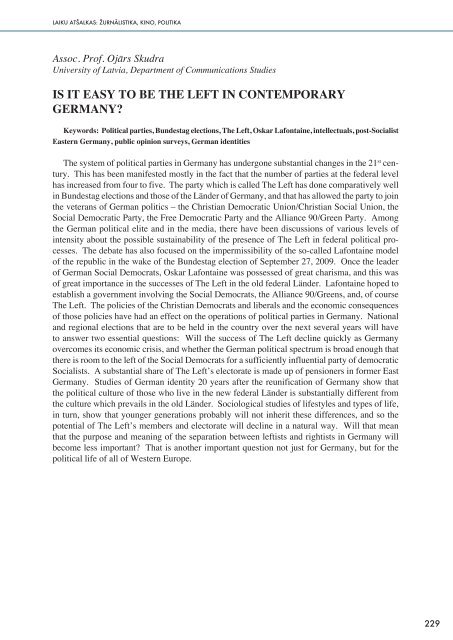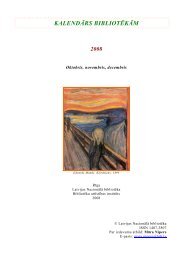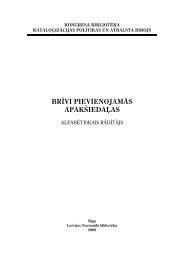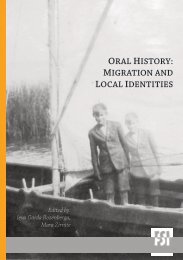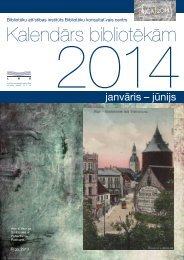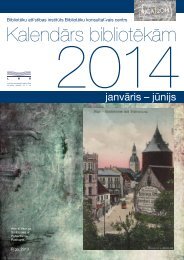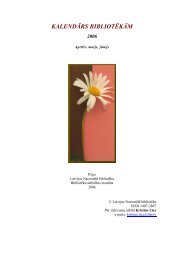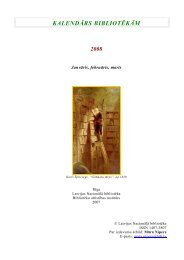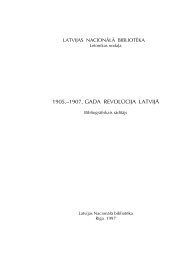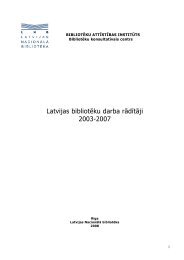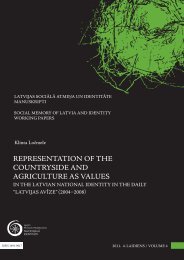LAIKU ATŠALKAS: ŽURNĀLISTIKA, KINO, POLITIKA - Academia
LAIKU ATŠALKAS: ŽURNĀLISTIKA, KINO, POLITIKA - Academia
LAIKU ATŠALKAS: ŽURNĀLISTIKA, KINO, POLITIKA - Academia
Create successful ePaper yourself
Turn your PDF publications into a flip-book with our unique Google optimized e-Paper software.
<strong>LAIKU</strong> ATŠALKAS: ŽURNĀLISTIKA, <strong>KINO</strong>, <strong>POLITIKA</strong>Assoc. Prof. Ojārs SkudraUniversity of Latvia, Department of Communications StudiesIS IT EASY TO BE THE LEFT IN CONTEMPORARYGERMANY?Keywords: Political parties, Bundestag elections, The Left, Oskar Lafontaine, intellectuals, post-SocialistEastern Germany, public opinion surveys, German identitiesThe system of political parties in Germany has undergone substantial changes in the 21 st century.This has been manifested mostly in the fact that the number of parties at the federal levelhas increased from four to five. The party which is called The Left has done comparatively wellin Bundestag elections and those of the Länder of Germany, and that has allowed the party to jointhe veterans of German politics – the Christian Democratic Union/Christian Social Union, theSocial Democratic Party, the Free Democratic Party and the Alliance 90/Green Party. Amongthe German political elite and in the media, there have been discussions of various levels ofintensity about the possible sustainability of the presence of The Left in federal political processes.The debate has also focused on the impermissibility of the so-called Lafontaine modelof the republic in the wake of the Bundestag election of September 27, 2009. Once the leaderof German Social Democrats, Oskar Lafontaine was possessed of great charisma, and this wasof great importance in the successes of The Left in the old federal Länder. Lafontaine hoped toestablish a government involving the Social Democrats, the Alliance 90/Greens, and, of courseThe Left. The policies of the Christian Democrats and liberals and the economic consequencesof those policies have had an effect on the operations of political parties in Germany. Nationaland regional elections that are to be held in the country over the next several years will haveto answer two essential questions: Will the success of The Left decline quickly as Germanyovercomes its economic crisis, and whether the German political spectrum is broad enough thatthere is room to the left of the Social Democrats for a sufficiently influential party of democraticSocialists. A substantial share of The Left’s electorate is made up of pensioners in former EastGermany. Studies of German identity 20 years after the reunification of Germany show thatthe political culture of those who live in the new federal Länder is substantially different fromthe culture which prevails in the old Länder. Sociological studies of lifestyles and types of life,in turn, show that younger generations probably will not inherit these differences, and so thepotential of The Left’s members and electorate will decline in a natural way. Will that meanthat the purpose and meaning of the separation between leftists and rightists in Germany willbecome less important? That is another important question not just for Germany, but for thepolitical life of all of Western Europe.229


